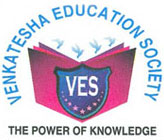 VENKATESHA EDUCATION SOCIETY
VENKATESHA EDUCATION SOCIETY 
Where to Get Tuition Money: All About Student Financial Aid
It's no secret that education in our country is not cheap. But those who want to learn deserve it! Not everyone sees themselves as college students, which is why it is so important to give an opportunity to people who decide to connect themselves with science.
There are student loans for those whose desire to learn is more significant than their savings account.
Student aid can be repayable and non-repayable. It is also important to note that it is federal and private. So let's look at them in more detail.
Repayable Student Financial Aid
Student loans are highly specialized loans that can cover tuition fees and other necessary expenses, such as on- and off-campus living, meals, the purchase of educational materials, and even specialized courses. They are repayable financial aid and may be federal or private. Federal student loans are usually more profitable. Their interest rates are lower, and repayment periods are often longer.
Federal student loans
Federal student loans are financial aid that the federal government can provide to help you meet your educational needs. The US Department of Education offers several types of federal assistance. Federal student loans are made based on the information you provide to the FAFSA. The whole program is called The William D. Ford Federal Direct Loan Program. There are four types of federal student loans currently offered:
Subsidized loans. These are loans that the state offers to those whose financial needs can be called "exceptional." In order to qualify, your family will need to prove that they do not have enough income to cover your education costs without additional help to qualify for this loan. The government will pay the interest on the subsidized loan for you while you are in school and six months after graduation;
Unsubsidized loans. There are no conditions for obtaining this type of loan. However, it will be necessary to return it from the moment you receive it without any delay;
PLUS loans. These financial aids are available for graduate and professional students and their parents. PLUS loans allow you to access the amount you need to cover your educational or related costs that other financial aid programs don't cover;
Consolidation loans. If you have several other student loans, such programs will help you combine them into one, with better rates, which is important.
Loan Forgiveness
In rare cases, federal loan borrowers get lucky and never have to repay their loans. Some federal loans may be forgiven if a student goes on to work in certain jobs. Those who work full-time for nonprofits or government organizations at the tribal, local, state, or federal levels may be eligible for Public Service Loan Forgiveness. Under PSLF, the remaining loan balance is forgiven after the borrower makes 120 monthly payments under a qualifying repayment plan.
Private student loans
The very name of these loans speaks for itself. You can get a private student loan from a bank or another private lender.
The requirements for obtaining this loan are similar to the requirements for obtaining a personal loan. The lender will evaluate credit history and credit score, low debt-to-income ratio and debt utilization ratio, and reasonably high income. The better your performance - the more favorable conditions you can get. The loan amount, interest rate, and term will be determined on a personal basis based on all the data that the lender will require from you.
Non-repayable Student Aid
Grants usually represent non-repayable financial assistance. A grant is a free money from the federal or state government. However, grants are not only provided by the government. Various nonprofit organizations also provide gratuitous financial aid to students.
Some grants are based on your financial situation. Others can be obtained by demonstrating a high level of academic achievement. Such grants are also known as merit-based grants.